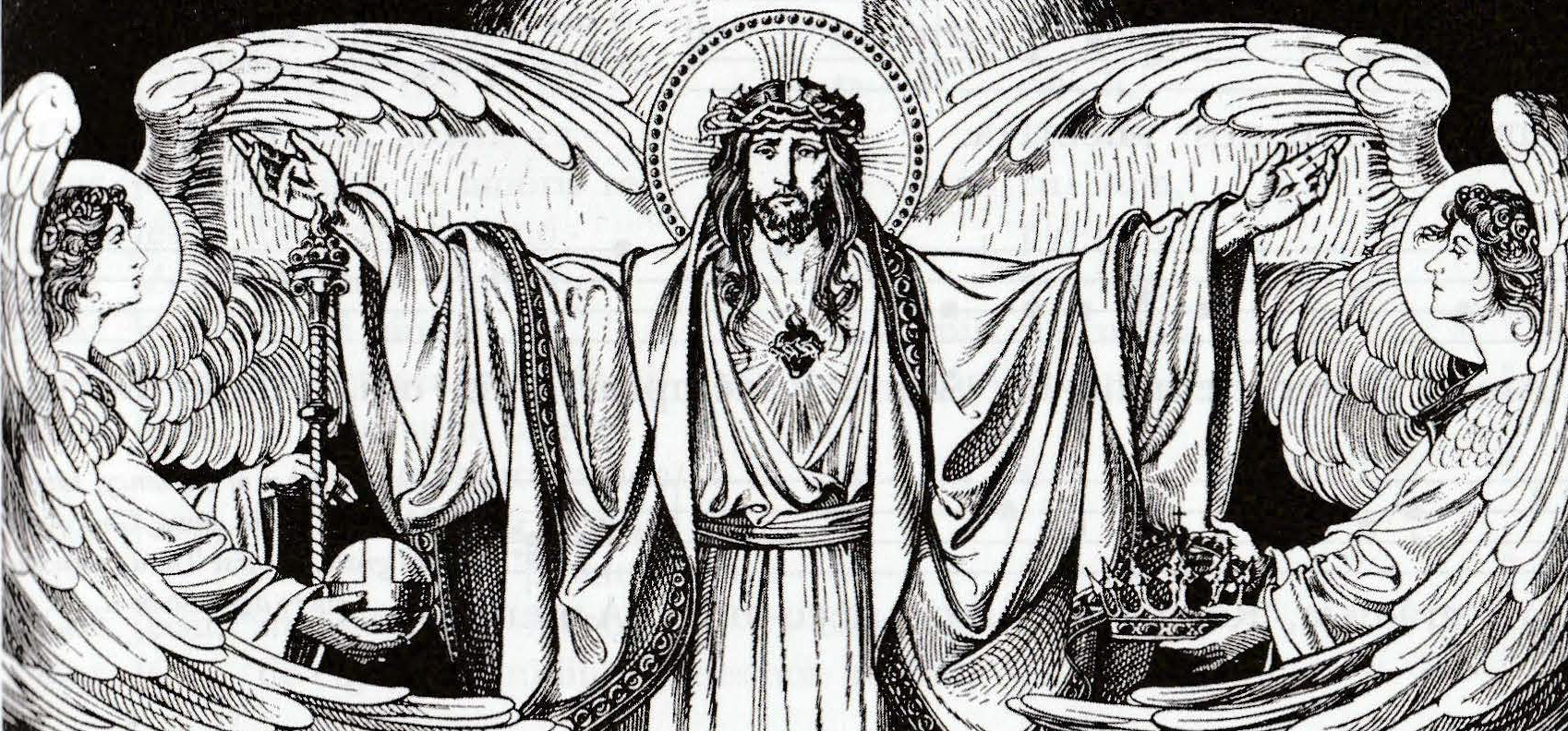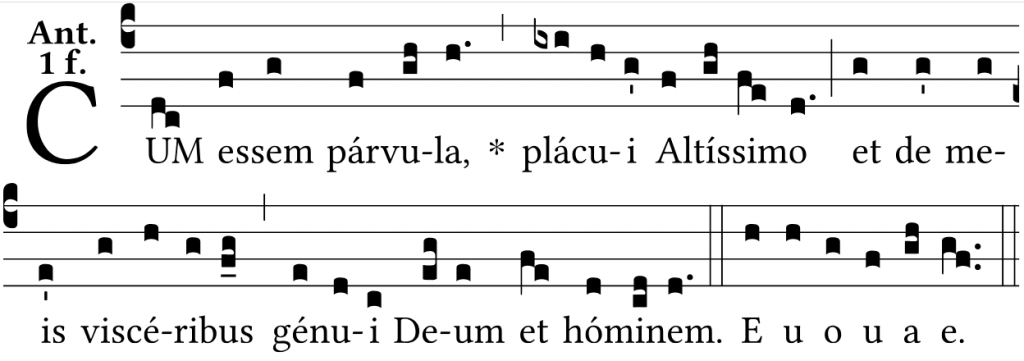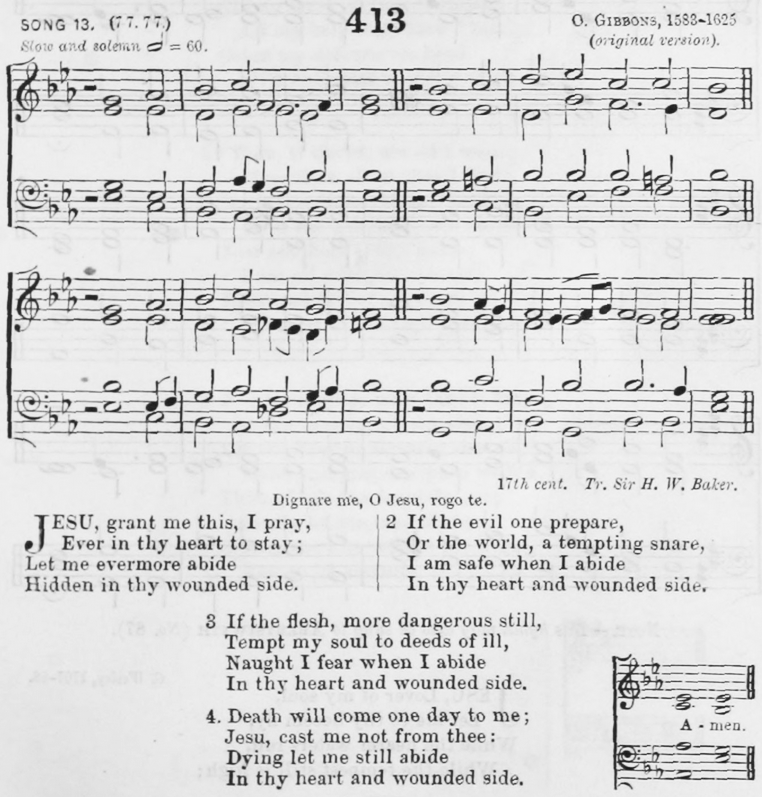BY Father Mateo Crawley-Boevey, SS.CC.
“Learn of Me, because I am meek and humble of heart.” (Matt. xi, 29.)
“Your life hid with Christ in God.” (Col. iii, 3.)
HUMILITY, SIMPLICITY
AND ABANDONMENT IN LOVE
OUR natural life is such a small thing that it seems hardly worthwhile living. An apostle, above all, cannot content himself with so small a thing; his true ideal is to live in Jesus and by Jesus, lost in the heaven of His Heart. Such is the one life worthy of the name and a fitting prelude of that which will be eternal.
But in order to attain to these sublimities, it is fortunately not necessary for us to take wings to the heights, we should rather descend, disappear and annihilate ourselves as Jesus did. Think how, in order to raise us, He came down to Mary’s womb, and from there to the crib of straw, lower still to His annihilation on the Cross, and even lower, when He abases Himself and disappears, not even keeping His Human form, in the Sacred Host. Such is His grandeur, such should be ours. It is really necessary that I should make myself small. In the divine order this is always the first and the last step. Alas! we are far too grand to be saints. “Grand” and “saint” are contradictory terms. For to be a saint one must be little, and to be a great saint it is indispensable that we should be very little. Divine grandeur — the only one — always means a lessening and a disappearance. If, then, we wish to transform ourselves in God, we must begin by making ourselves very little. And to give Him in communion to other souls, to be His friends and His apostles, we must at once prepare ourselves to be particles of the Host which is Jesus Himself. Is it not wonderful to think that the Word, in order, to give Himself to us without reserve, comes under the appearance of bread? We are not greater than the Master. We shall never be able to work miracles unless we begin by this miracle of grace: namely, we must decrease that He may increase in us and in souls.
Contemplate the Great Forsaken King in the thousands of Tabernacles scattered over the world, with no other splendor than that of silence, the Poorest of the poor, mute, still, neglected. What shame and reproach are ours when we meditate on our dreams of self-love and ambitions before an almost ruined Tabernacle and a rusty Ciborium. The Incarnate Word has humbled Himself to the dust, and we think of our right to esteem, affection, credit, consideration and honor. Let us blush for shame to have our thoughts thus occupied in the presence of Jesus in the Blessed Sacrament and vow to forget ourselves, as He forgets Himself, to lay aside those vanities and to rejoice in having but one right, that of having none!
“Learn of Me, because I am meek and humble of heart.” (Matt. xi. 29.) And this is the same lesson of profound abasement and humility which He gave in Paray-le-Monial to His servant St. Margaret Mary, and through her to His Apostles.

Click the ▶ Button to sing the prayer (key for Women), or play the song in a New Window ⧉
Click the ▶ Button to sing the prayer (key for Men), or play the song in a New Window ⧉
| H. W. Baker (1821-1877). | Orlando Gibbons (1583-1625). Song 13. |
|---|---|
| 1. Jesu, grant me this, I pray, ever in Thy heart to stay; let me evermore abide hidden in Thy wounded side. |
2. If the world or Satan lay tempting snares about my way, I am safe when I abide in Thy heart and wounded side. |
| 3. If the flesh, more dangerous still, tempt my soul to deeds of ill, naught I fear when I abide in Thy heart and wounded side. |
4. Death will come one day to me; Jesu, cast me not from Thee: dying let me still abide in Thy heart and wounded side. Amen. |
O Jesus! conceal me in Thy wounded bosom; free me from the yearning to be loved and appreciated; deliver me from the evil of wanting to put myself forward and win distinction! Humble me till I am an atom of dust, a spark of fire in the flame of love of Thy Sacred Heart. Let me there forget creatures, everything and my very self.
“If thy eye be sound,
thy whole body shall be full of light.”
(Matt. vi, 22.)
The characteristic of the Spirit of Jesus in the whole Gospel is love in the most perfect and sublime simplicity. Truly, simplicity is a rare, a very rare virtue, even among good people. It may be defined as the splendor of humility and the reflection of truth. Hence, the guileless child is instinctively truthful, because it is simple. Simplicity is a moral limpidity in which an extraordinary and celestial beauty of soul is always reflected. Faulty upbringing, systematic depravation and evil example, have all made us very complex and diplomatic; we live by so many fallacious arguments and compromises! Alas ! our hearts are an inextricable maze and Jesus cannot abide in such confusion. He is supreme simplicity. His words were not in vain when He said: “Unless you be converted and become as little children,” (Matt. xviii, 3.) and “he that is the lesser among you all, he is the greater.” (Luke ix, 48.) And again, “Let your speech be: Yes, Yes: No, No”; (Matt. v, 37.) and “If thy eye be sound, thy whole body shall be full of light.” (Matt. vi, 22.)
Be simple, very simple, with God since you are the children of such a Father. Go to Him, turn to His Heart with the lawful and sacred audacity of little children, without crooked dealings, “like a bullet to its mark,” as the Cure of Ars used to say. How easily His Heart is won by such a way of acting. You then prove you know Him and understand the teaching of His Heart and of the Gospel; you are then but a step from winning a great victory.
Compare the high-sounding, obscure and pedantic language of those who call themselves “thinkers” and “intellectuals” with that of the Saints. The Angels must sometimes be amazed when listening to a dialogue between such souls and Jesus. On the contrary, we have an exquisite, daring expression in the words of Little Teresa: “If I were Jesus and Thou wert Teresa”; and that of St. Margaret Mary: “Why dost Thou not let me go the ordinary road of the Daughters of Holy Mary? Lord, Thou wilt be the cause of my being sent away.” And St. Teresa on hearing that the Lord tried His friends more than others replied: “That is why Thou hast so few!” Never be afraid to talk to Jesus like little children and like the Saints. Remember that He Himself taught us to pray in the simplest fashion: “Our Father Who art in Heaven — Thy Kingdom come — Give us this day our daily bread,” but, above all, give us the living Bread which is Thyself and Thy Heart. Be our life, O Jesus!
Whilst a royal audience is altogether a difficult and puzzling problem to face — because of having to study and observe all the rules of etiquette concerning our words and attitude — with peace and comfort; we are in our own house and perfectly happy at the feet of the King of Kings, at Thy Feet, O Jesus!
The following story will teach you a great lesson. Let us call it a dialogue in Nazareth. A little girl of eight had been well prepared for her First Communion and had made it with fervor and generosity. Our Lord, Who never lets Himself be outdone in generosity, willed that such great love should be repaid by a miracle and, from that day on, used to converse with her. She was not in the least surprised, for, in the simplicity of her heart, she thought that everybody could hear Jesus and speak as she did to Him. They talked together as naturally and familiarly as a little brother and sister.
One day Jesus said to her: “Do you really love Me very much?” She was up in arms at once, for the question seemed to imply a doubt and she replied: “You oughtn’t to ask me that, dear Jesus.” — “Why not?” He inquired. “Because You know quite well that I have given You my heart and it belongs to You.” — “Yes,” answered Jesus, “I know, but I wanted you to tell me so. Very few people love Me nowadays.”
Shortly after, in a moment of fervor, the little girl said to Jesus: “Is it really true that You, Who are God, can love a little thing like me?” Then Jesus paid her back in her own coin, saying: “You ought not to ask Me that.” — “Why not?” she asked, quite upset and fearing she had done wrong. “Because you know quite well I do. You are My very own, My little apostle, and My Heart belongs to you.” — “Well,” said the child, “I knew You loved me, only I wanted You to tell me so Yourself, Dear Jesus.” And so it went on nearly every day.
However, as it was a delicate matter and imagination might easily have crept in, I resolved, in all confidence, to make a test and to draw from Our Lord a proof that it was really He Who talked to the child.
So, one day, I told her to ask for the conversion of a great sinner. The next time she came to confession she said in her usual ingenuous way: “Father, it’s coming.” — “What do you mean, child, what’s coming?” — “The soul you asked Little Jesus for, Father, don’t you remember?” and, without further ado, she went on: “Next day, when Jesus began to talk to me, I said: Please Jesus, wait a minute, I want to speak first today. Then I told Him what you had said to me and that He would know quite well which soul you mean, since He was God. And with a lovely smile Jesus said: “Yes, I know. Ask Me always for souls, and tell the Father also to ask, too, and he shall have them. After your next confession the man he means and whom nobody has been able to convert will go and make his confession to him. But in return you must be more than ever My little apostle by your love, your communions and sacrifices and always be very obedient too.”
Then she stopped short and added hurriedly: “Father, please, hadn’t you better give me absolution at once, the soul’s just coming here?” I did so and, as the child moved towards the altar to say her penance, I saw coming towards my confessional a man who was known to lead an absolutely irreligious life. “Father,” he said, “I do not know what has happened, but since this morning I am quite changed and I have come to make my first confession.” Jesus had vanquished him, giving this soul as a reward for the loving prayers and sacrifices of a little child.
I really think that we are altogether too solemn to be saints. Blessed are the little children, and those who make themselves like unto them. “Whatever our age, and however lofty our station, we can always be children in sincerity and simplicity,” Little Teresa wrote. I have already said, “Pray as you love.” Let there be less ceremony in your way of speaking to God and be more like a child talking to its Mother. Do not seek fine words or ramble off into useless reasonings. Think how marvelously simple are the prayers of the Church. The same words are repeated hundreds of times in the Litanies, in the Missal and in the Breviary: “Amen,” “Have mercy on us,” “Glory be to the Father and to the Son and to the Holy Ghost.” The whole system of the official prayers of the Church is of this kind. There is no art, either human or divine, there are no complications. Everything is beautiful, divine and simple.
This principle has its practical and chief application in the spiritual life. A teacher of the very first order in this school is Little Teresa, of whom Cardinal Bourne aptly and truly said, in a solemn panegyric, that she had had the privilege of suppressing mathematics in sanctity. Analyze her famous little path; study her spirituality, her life of prayer; observe her method of dealing with her fellow-creatures, with her Sisters; in everything she has the supreme, divine art of enchanting simplicity. It seems as though heaven had presented her to us with the credentials of miracles precisely to recommend her as the finished model of evangelical simplicity. The failure to understand the lessons which, at different times, God has given to souls, through certain saints providentially sent at opportune moments, has always been a bad symptom. Few among these lessons have been more eloquent, suggestive and rich in doctrine than that of the Little Flower: Let us try to understand it!
“Thank you, sweet and marvelous little saint,” wrote a great author. “Thank you for having with your gentle smile made, us understand that according to the Gospel, greatness does not lie in the knowledge acquired in books, nor in the minds of those who pretend to interpret them. Thank you, Little Teresa, for having awakened so many of the learned and conceited from the moral depression in which they lived, believing only in false lights, and intellectualism. More prudent, wise and learned than all of us, you have been able to prove by your life, which was a marvel of simplicity and heroism, that he who humbles himself is exalted, he who is simple is profound, he who knows how to love knows everything and he who can lovingly die little by little is the most fruitful of apostles.”
There still exists, in Lima, a bit of the garden in which St. Rose and the Child Jesus often walked hand in hand. There still remains the old tree-trunk on which the saint used to sit, while the Divine Child picked flowers, which He placed in Rose’s lap. She would at once make a crown with them and put it on the brow of the Little King. He would then smile and say: “Dear Spouse, because thou hast chosen the thorns for thyself, I want thee to have the flowers.” And, with this, the Child Jesus would take the crown from His Head and place it on hers, saying: “My Heart is thine, dear Rose.”
Note how Rose of Lima and Teresa of Lisieux, in spite of there being centuries between them and of their having apparently walked by different paths, speak the same language and sing the same canticle. They are two roses of which the Child Jesus loved to pluck the petals to His Glory. He found them worthy of Himself because of their simplicity, littleness and meekness of heart, and each of them could say, as she played in her own way with the Child Jesus, “cum essem parvula placui Altissimo” -“Because I was little I was pleasing to the Most High.” (Office of the Annunciation.)

I repeat, let us be simple in our relations with God, for simplicity implies humility and trust. Let us be simple in our relations with our neighbor, in seeking and loving nothing in them but Jesus and forgetting our personal interests to serve and help our brethren for love of Him. Lastly, let us be simple with ourselves; to deny our good qualities would be ingratitude and mock humility; to attribute them to ourselves or to lay stress upon them would be pride. Let us likewise acknowledge our defects, but without pessimism or irritation. We shall then find light and strength to correct them in a real intimacy with the Heart of Jesus.
← Prior Chapter 8 — Loving Confidence
Current — Chapter 9 – Humility, Simplicity and Abandonment in Love
Next →: Chapter 10 – Abandonment
